If a deaf-mute steward served you your cocktail last Saturday, the men and women training the differently abled for hospitality are succeeding. Meet India’s best ability trainers determined to make our F&B industry inclusive
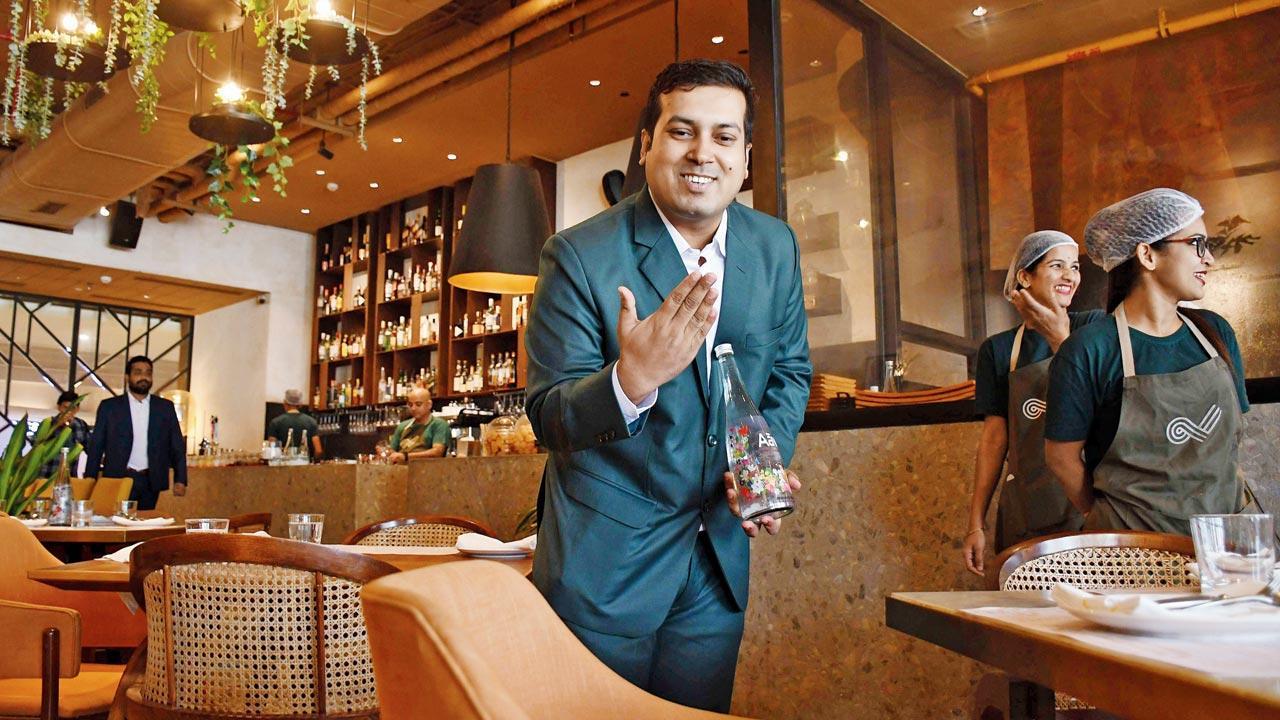
Tarik Hossein, assistant restaurant manager at Ishaara, Lower Parel, is just back from recruiting-training specially abled staff like him to run the restaurant’s Bengaluru outpost. Pic/Ashish Raje
At one of luxury mall Palladium’s most popular restaurants, Ishaara, assistant manager Tarik Hossain is holding up ably as second in command. He scans the room with attention, pouring a glass of water when it empties, wiping clean crumbs off a table without disturbing a guest who is mid-meal and checking if someone would like seconds. And he smiles. A lot. Hossain, 31, tells us by using his hands and expressing with his eyes, that he learnt it all from “Clyde sir”; seven years ago, he was struggling with even how to use a napkin or greet a guest.
ADVERTISEMENT
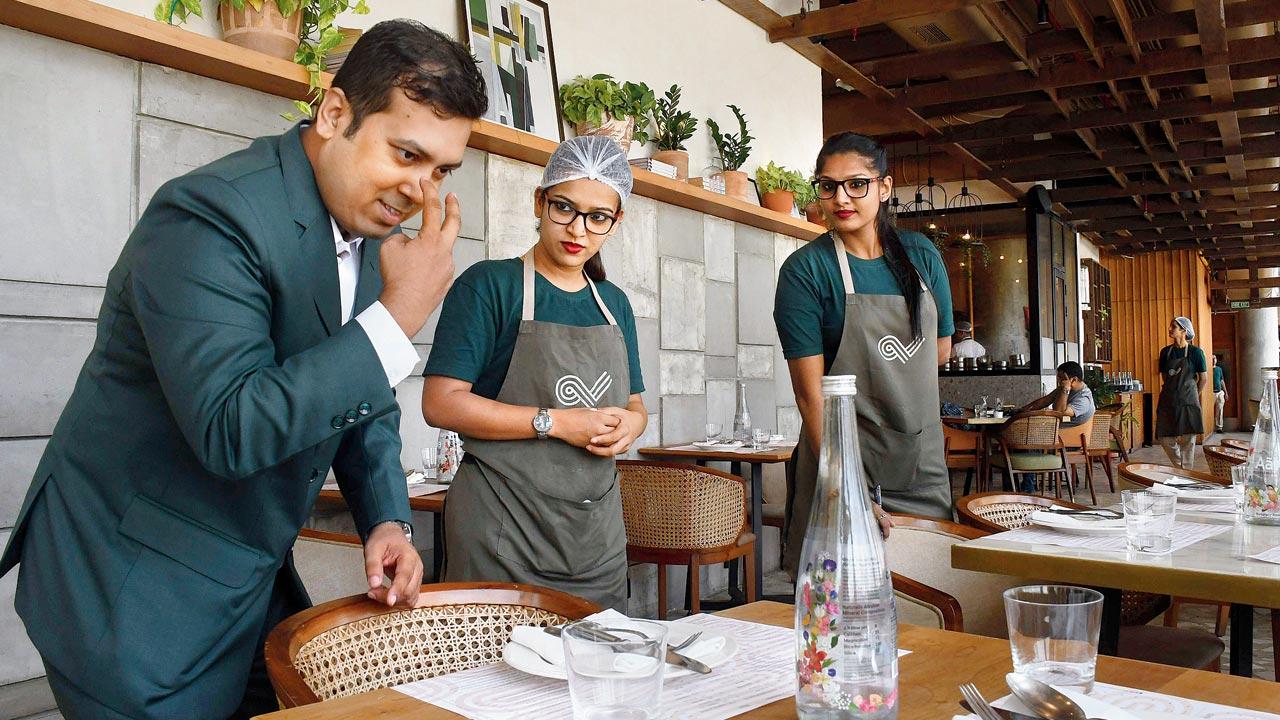 Tarik Hossain, a speech and hearing-impaired person, joined Mirchi and Mime as a steward in 2015. Today, not only has he risen to the rank of assistant restaurant manager, but is also involved in recruitment of other speech and hearing-impaired persons and their training. Here he is teaching his team members how to greet guests, serve water or ensure that cutlery is spotless. Pic/Ashish Raje
Tarik Hossain, a speech and hearing-impaired person, joined Mirchi and Mime as a steward in 2015. Today, not only has he risen to the rank of assistant restaurant manager, but is also involved in recruitment of other speech and hearing-impaired persons and their training. Here he is teaching his team members how to greet guests, serve water or ensure that cutlery is spotless. Pic/Ashish Raje
Clyde Castellino is an ability trainer, who mentors and hires specially abled persons for the hospitality sector. When Powai saw the launch of Mirchi and Mime in 2015, Mumbai got its first restaurant to be run by the disabled. Castellino worked closely with the staff of the eatery that became an instant hit, and later at Ishaara, the modern Indian restaurant launched in 2019 by Mirchi and Mime’s original founders Prashant Issar and Anuj Shah, and Riyaaz Amlani of Impresario Handmade Restaurants. Famed in a short span for its A-rate food and warm service, Ishaara’s floor operation is exclusively run by speech and hearing-impaired persons. Castellino never worked towards becoming an ability trainer; it happened by accident, he says. “They [Issar and Shah] were keen on a restaurant similar to Toronto’s Signs, and asked me to recruit and train staff. I began by approaching non profits, not just in Mumbai, but in the interiors of Maharashtra, including Beed,” he recollects. Initially, Castellino was accompanied by an interpreter and his only selection criteria was passionate individuals who were hungry to grow. This mandate clicked magically with the differently abled, who in India, are rarely offered an opportunity to work in client servicing. In that round, Castellino picked 40 people and began to train them. Interestingly, it wasn’t about the typical lessons one associates with hotel management; Castellino focussed on life skills and moral science. “What I gauged when interviewing them was that since many of them didn’t interact much with others, they needed to work on the simple details, like how to stand, not clumsily scratch their head. They had to be well-groomed, so I bought the boys hair gel and a basic make-up kit for the stewardesses. The woman bartender helped me groom the ladies. Once this was done, came the technical training—cutlery placement, what dish should be served from what direction, how to balance the food trays. To give them a demonstration, I reached out to the principal of my catering college and requested if I could use their mock training restaurant to give the recruits real-life experience, and thankfully, they agreed.”
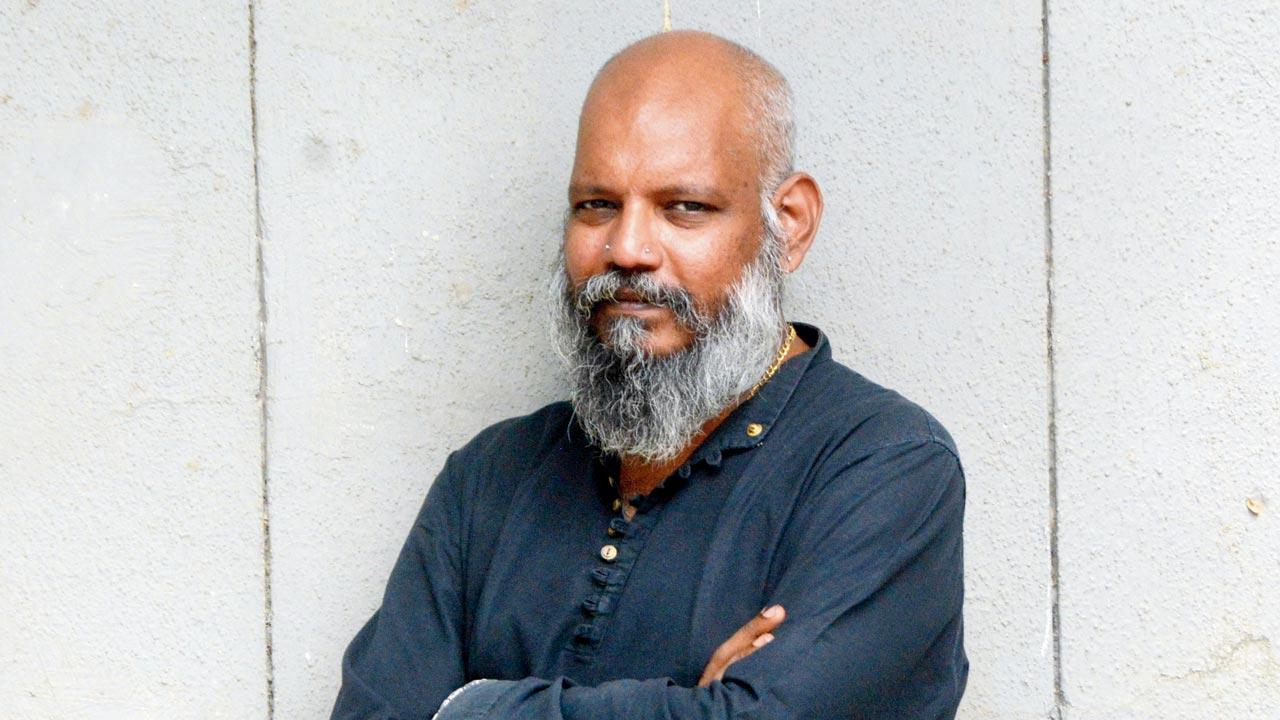 Clyde Castellino never worked towards becoming an ability trainer; it happened by accident when he was tasked to set up a team of speech and hearing-impaired persons for Mirchi and Mime. Pics/Satej Shinde
Clyde Castellino never worked towards becoming an ability trainer; it happened by accident when he was tasked to set up a team of speech and hearing-impaired persons for Mirchi and Mime. Pics/Satej Shinde
The group started off with a stipend and once the restaurant was operational, they were handed salaries, plus service charge, tips and incentives. Castellino says he is yet to meet an abled F&B professional who displays as much passion as this group. “Had it not been for pandemic, Tarik would have been restaurant manager by now,” says Castellino, who is now Impresario-led Social’s head trainer. Coming up next is a plan to hire speech and hearing impaired persons for this upmarket bar chain, which added its 30th outlet earlier this year, in Thane.
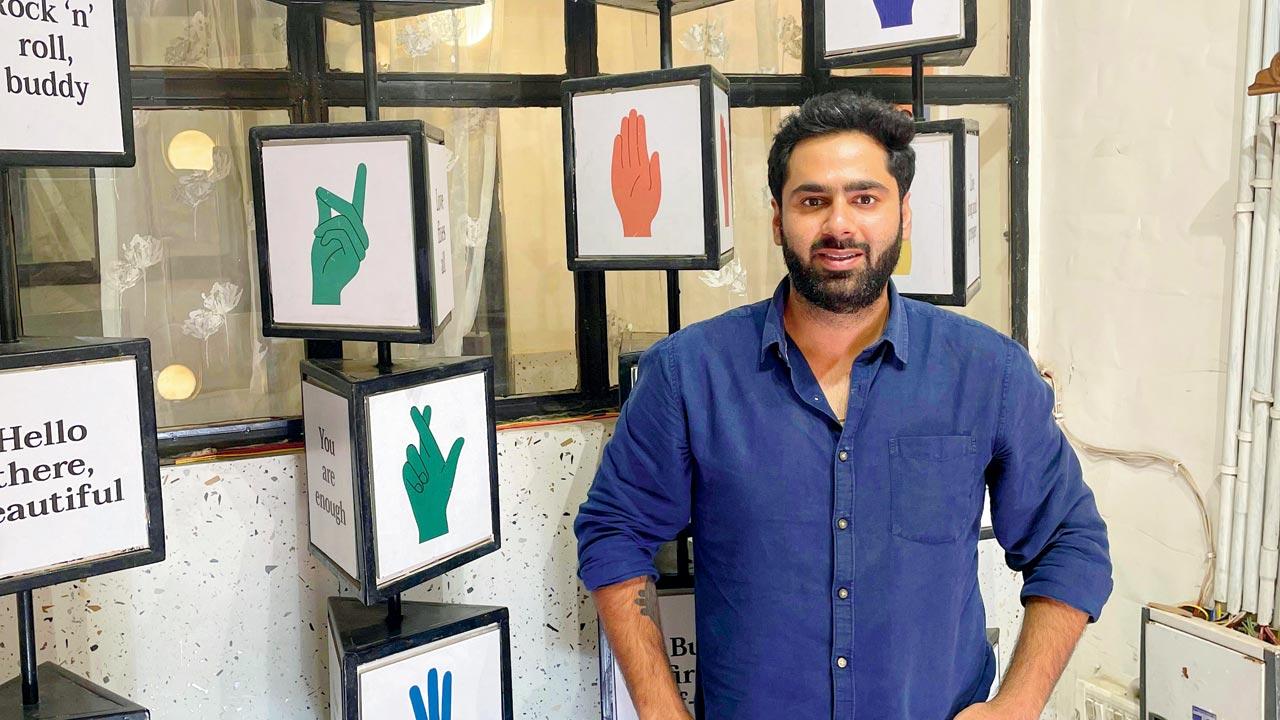 Shivansh Kanwar, co-founder of Echoes, says that at the cafe, every dish has been assigned a code, which the guests can write on a notepad
Shivansh Kanwar, co-founder of Echoes, says that at the cafe, every dish has been assigned a code, which the guests can write on a notepad
Issar says Ishaara is flying high because he was clear that sympathy had no place in the kitchen. “It is a fine dine restaurant first. It happens to serve Indian food, and also happens to be serviced by people with speech and hearing impairment.” It is this order of priorities that Issar thinks has helped them stay profitable, and survived the brutal months of the pandemic. Ishaara is set to launch two more outlets, one in Bengaluru and another in Pune.
 Staff at Echoes seen informing a guest how to use the switch hanging above their table, which lights up a bulb, alerting its deaf and mute staff
Staff at Echoes seen informing a guest how to use the switch hanging above their table, which lights up a bulb, alerting its deaf and mute staff
Hossain is just back from Bengaluru where he was helping the team recruit. He tells mid-day with pride that he is financially independent, able to pay for his child’s education, and send money back home to his mother in Kolkata. “I also take my wife out to restaurants and on vacations!”
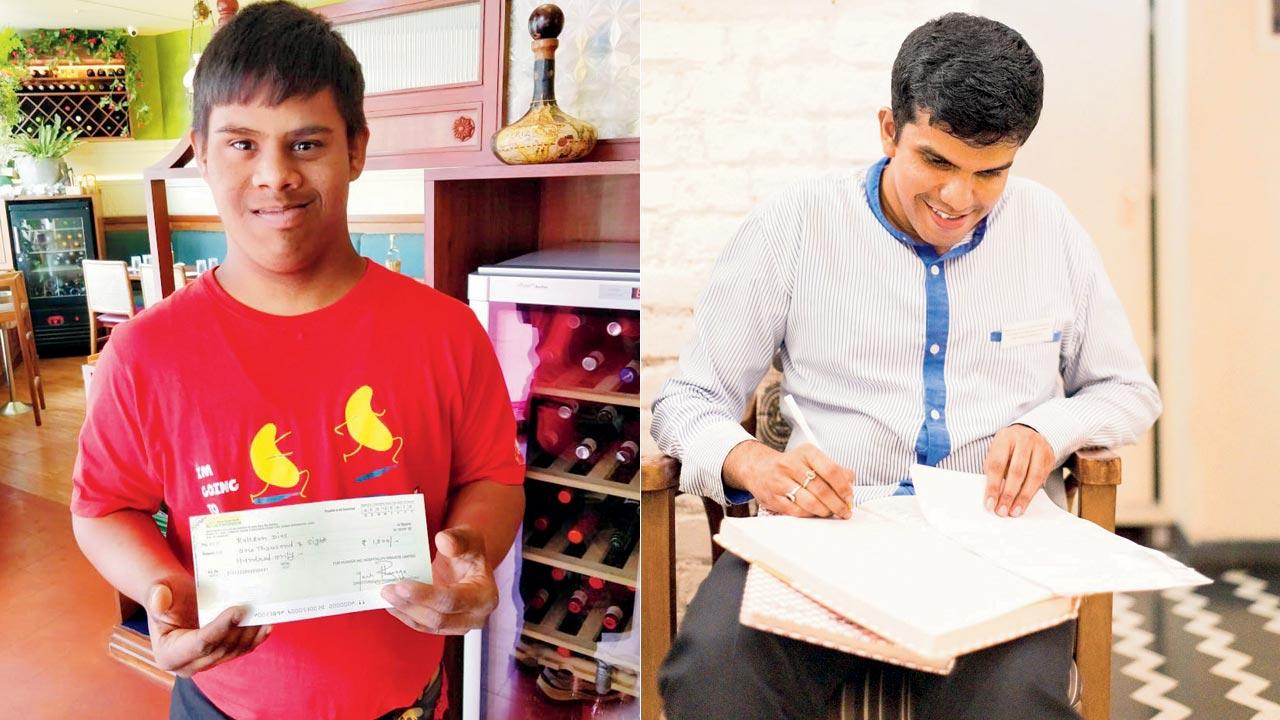 Ralston who was always keen on working in the F&B industry recently completed three years with O’Pedro as a service assistant; (right) Karthik was recently hired as a front office and housekeeping assistant by Hotel Abode Bombay
Ralston who was always keen on working in the F&B industry recently completed three years with O’Pedro as a service assistant; (right) Karthik was recently hired as a front office and housekeeping assistant by Hotel Abode Bombay
According to market intelligence firm, Unearthinsight, India has almost three crore people with disability, of which around 1.3 crore are employable, but only 34 lakh have been employed.
 Anand and Sachin both work as service assistant at Estella; (right) James works at Perch as a service assistant.
Anand and Sachin both work as service assistant at Estella; (right) James works at Perch as a service assistant.
In Hudson Lane near the north campus of Delhi University, Echoes is teeming with customers. A switch hangs above every table, and a press lights up a bulb, alerting its deaf and mute staff to service that corner. Founders Shivansh Kanwar, Sahib Sarna and Sahil Gulati, who started Echoes, prefer to use codes on the menu to help guests identify dishes. P1, 2, 3 is for the pasta section, for instance. A notepad is handed to the guest to jot down the codes. A team of 35 now services three outlets across Delhi and Hyderabad. “Pre-COVID, we had 89 staffers in nine branches across the country. Hopefully, we will go back to that number,” says Kanwar, who helms the training at Echoes, which he calls general customer engagement followed by a week-long classroom training session, where recruits are familiarised with various foods.
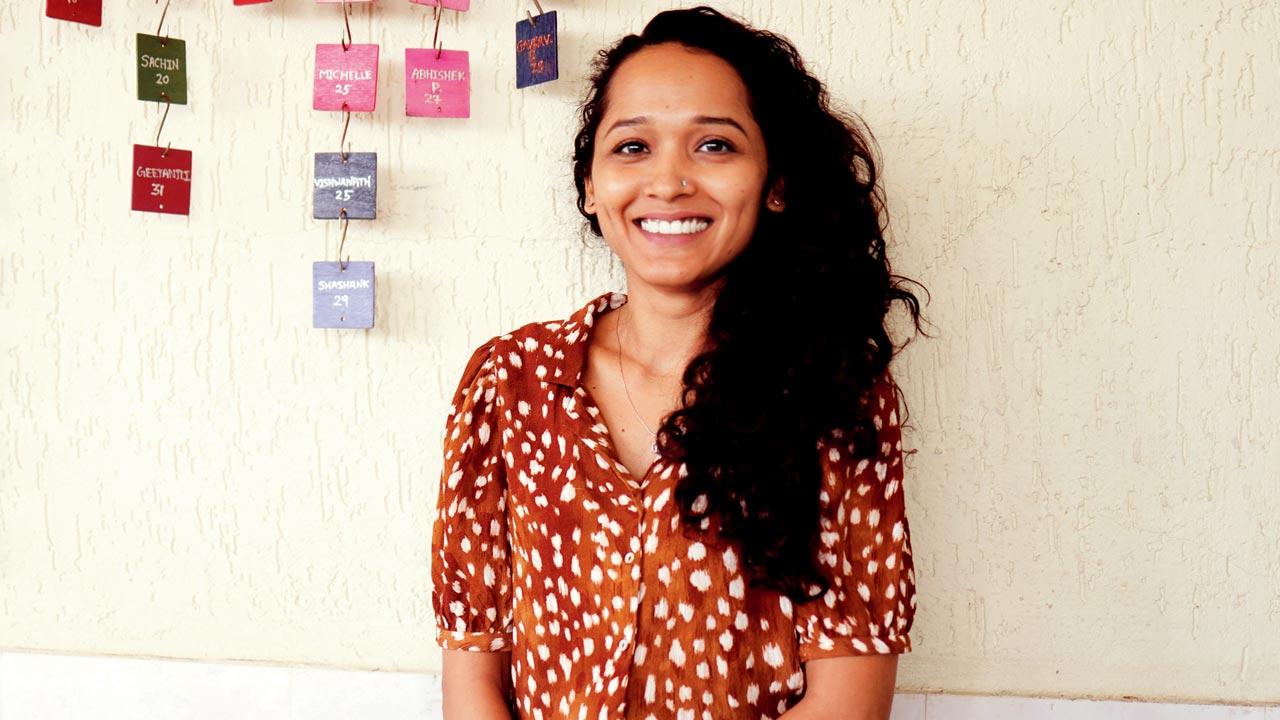 Beverly Louis’ Mann Foundation boasts of a curriculum that has identified various roles that people with intellectual disability can take on. While she conducts intense training for people with intellectual disability, there is also a sensitisation programme for employers and co-workers where they are introduced to the new hiree and his/her traits
Beverly Louis’ Mann Foundation boasts of a curriculum that has identified various roles that people with intellectual disability can take on. While she conducts intense training for people with intellectual disability, there is also a sensitisation programme for employers and co-workers where they are introduced to the new hiree and his/her traits
Malad resident Beverly Louis says it was a visit to a school for persons with developmental and intellectual disabilities that led her towards education and then training. “I had gone with my aunt to Dilkhush Special School in Juhu and ended up filling the training form to be a special educator. It was during this period that I found like-minded individuals and we wondered why people with intellectual disability weren’t offered exposure. We started weekend hobby classes, which eventually led to setting up Mann Foundation, headquartered in Santa Cruz.” Louis founded the non-profit that’s dedicated to the growth of persons with autism, down’s syndrome, learning disabilities and Attention Deficit Hyperactivity Disorder, in 2011 with Dilshad Mehershahi, Geetanjali Gaur and Gautam Lalwani, and spent the next two years in helping the kids make craft products. It was during this time that they noticed four specially-abled persons taking on the role of trainers while informally teaching their peers. “It was a revelation. If they could learn so well that they were able to train others without intervention, imagine what they would do if given assistance.” This led Louis and team to develop a curriculum and identify jobs that would work well for this lot. It was a struggle to convince employers until in 2015, Mathuradas Mill Compound’s popular resto-bar Cafe Zoe reached out to them and employed two staffers. This was the first time that they put their curriculum to test. “The training is intense, and it doesn’t end,” says Louis, adding, “While it ranges anywhere between one to three years of training at their foundation, training after they are hired starts with a sensitisation programme for employers and co-workers. We tell them about the person who is joining, his or her traits and how the rest should behave with them because they may be grappling with inadequate exposure and stereotypes. Then we begin with on-job training for our trainees.” Here, a job coach goes to the said workplace because people with mental disabilities struggle to generalise. If they learn a skill set in one environment, they find it tough to implement it in a new environment. For the first few days, the job coach would do every task that the trainee was expected to do. Gradually, the job coach would start taking a backseat and start assisting in tasks, and finally, encourage the trainee to reach out to his co-workers as and when assistance is needed. This training is about two weeks long. A performance check once a week for three months and then once in a couple of months ensures the differently abled are treated fairly and are growing as professionals. Louis and her co-founders moved from the first batch of 25 adults to becoming a team of 30 trainers who now work with 250 potential recruits. Mann Foundation has their trainees currently posted at Bandra’s Perch Wine And Coffee Bar, BKC’s Goan grub hub O’Pedro, and Lower Parel’s regional and seasonal food resto-bar The Bombay Canteen.
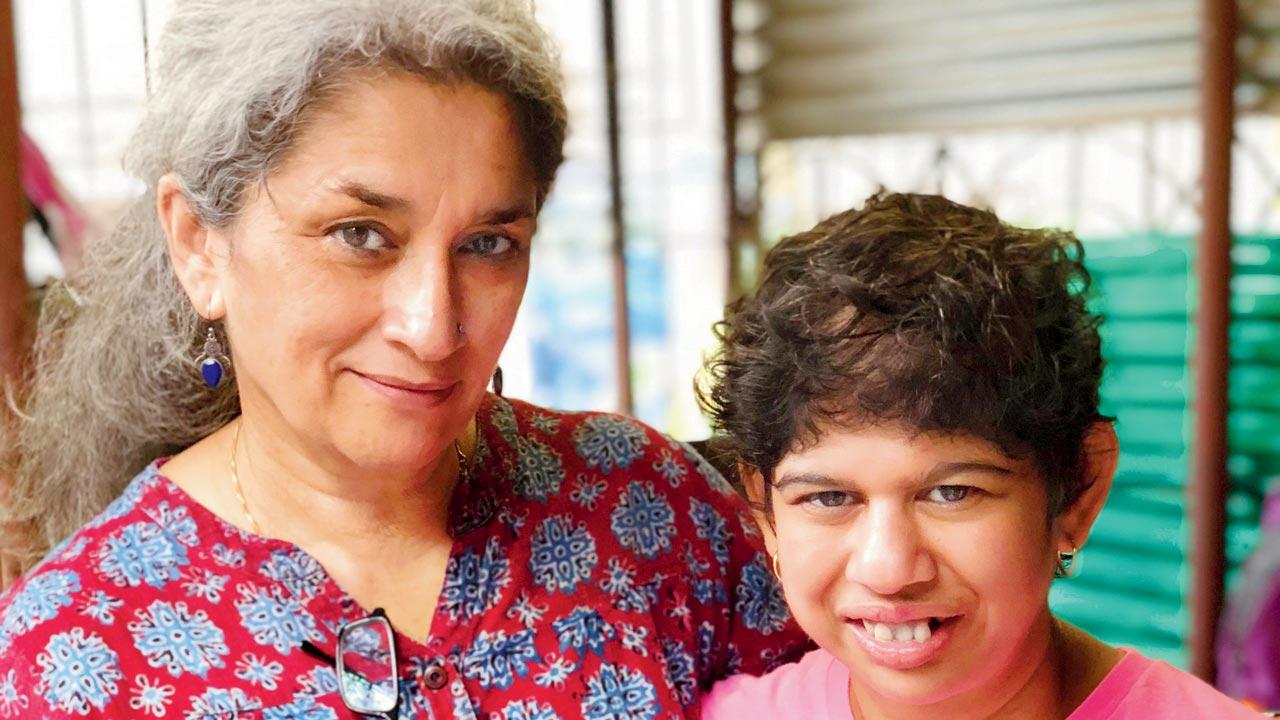 Sushama Nagarkar, founder of Yash Charitable Trust, which also runs a skill development centre, with her daughter Aarti, who is autistic and works at Café Arpan
Sushama Nagarkar, founder of Yash Charitable Trust, which also runs a skill development centre, with her daughter Aarti, who is autistic and works at Café Arpan
Along the way, the foundation decided to digitise the curriculum. It’s now available on an open source software called Zoho, which is available to nine external partners, including training centres, NGOs and those who want to use it to train their family members at home. “The curriculum needed a lot of practical thinking for us to break up every task, which became even more critical with job skills as every industry has a different set of details to keep in mind. Everywhere we went, we observed and mapped out jobs that could be done by people with disabilities. Once we identified the roles, we broke them down into smaller achievable tasks, that are listed in the order they are meant to be taught, so that anyone can access this curriculum.”
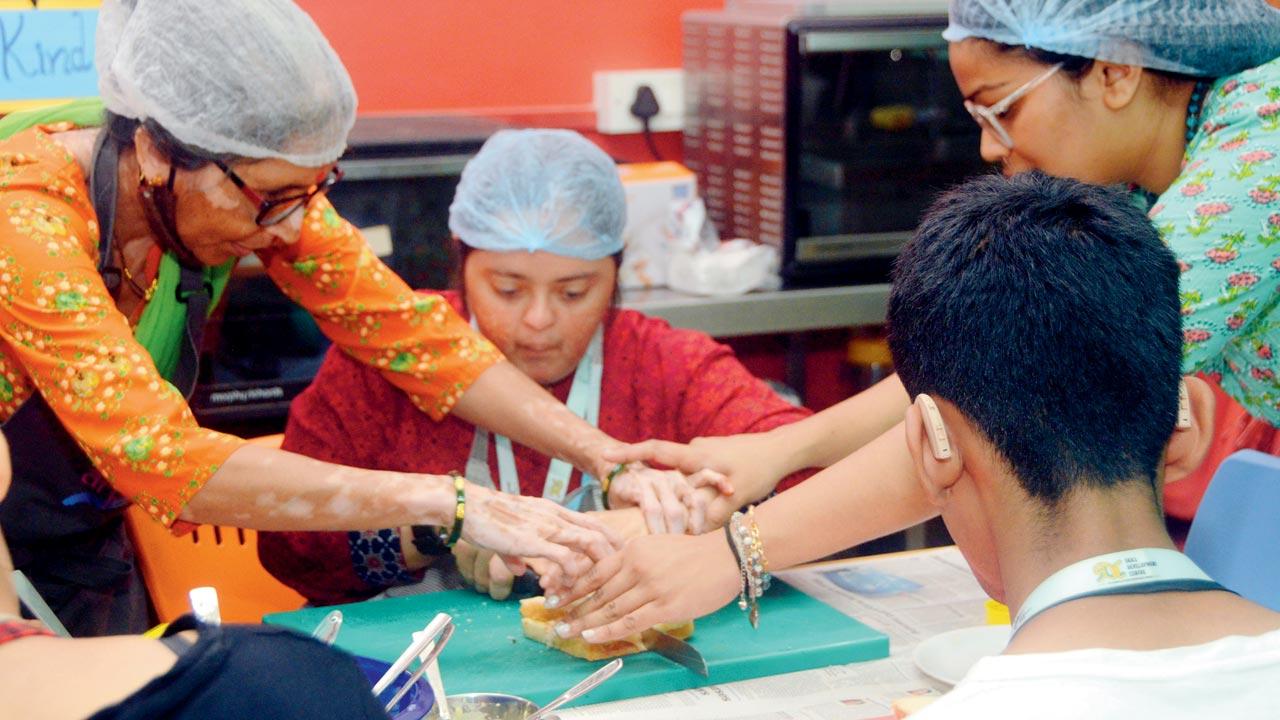 People with intellectual disability getting trained at Yash Charitable Trust’s skill development centre
People with intellectual disability getting trained at Yash Charitable Trust’s skill development centre
In Juhu, Yash Charitable Trust, which was founded in 2015 by Sushama Nagarkar, and saw persons with developmental and intellectual disabilities running a dabba service and then a cafe called Café Arpan, expanded its programmes under their skilling and supported employment projects to include a skill development centre. Offering a six-month training course plus internship at the cafe, the course focusses on food and beverage services, and is currently training 38 persons. “It’s very recursive. It builds on skills. It continues fostering independence. There are pieces that require frequent revisiting and that’s what we do. If there is newer equipment or new ways of doing a task that might benefit the team members to learn, we incorporate these and the curriculum gets tweaked as we go along. Since we are working with adults, it is important to help them build in skills of self-advocacy and self-determination to make good choices and be able to articulate what you feel,” says Nagarkar whose daughter Aarti, is autistic and works at Café Arpan. “She is a people’s person. She loves to entertain others, laugh, and if she’s in the mood, even sing for them. At the cafe, she works front facing and serves customers, cleans the tables, etc, which works for her strength. It is important that every person with disability is viewed as an individual first, with aspirations and dreams. Every person who expresses an interest in joining us is first interviewed. Here, we assess their strengths, weaknesses and aspirations. The curriculum is tweaked to match the needs and goals of the said person, so that they can be successful in whatever they choose to do, whether it is learning life skills or social skills.”
10
Percentage of attrition among disabled; it’s close to 60% among abled hospitality professionals
250
Number of potential recruits that Mann Foundation’s 30 trainers are currently working with
 Subscribe today by clicking the link and stay updated with the latest news!" Click here!
Subscribe today by clicking the link and stay updated with the latest news!" Click here!







